Saturday 5th February 2011
US Embassy Rally For Egypt – Grosvenor Square
Egyptian Embassy Demonstration – South St
Hizb ut-Tahrir Britain at Egyptian Embassy – South St
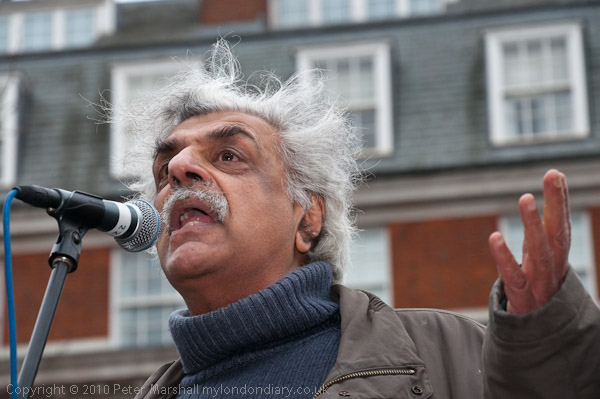
Egypt’s history is long and complex, going back to the back to the 6th–4th millennia BCE when it was one of the cradles of Western civilisation. Wikipedia has a lengthy article which even so skims over the many details, and certainly I won’t go into much here.
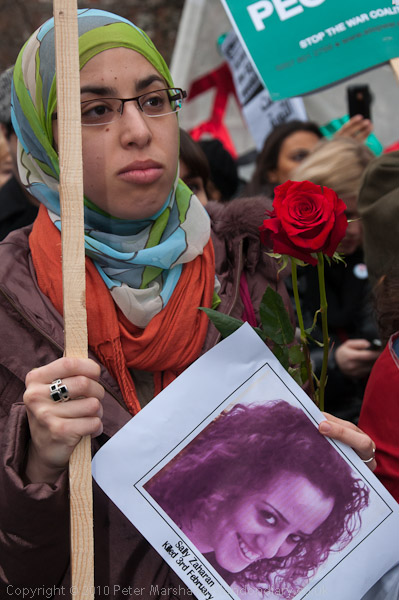
For many years Egypt was a part of the Ottoman Empire, but after the building of the Suez Canal in 1869 France and Britain played a more important role in its history and in 1882 the UK invaded the country which became occupied and it became a de facto British protectorate, breaking away completely to become a UK protectorate during the First World War after the UK military deposed the ruling Khedive, replacing him with his pro-British brother Hussein Kamel, who declared himself Sultan of Egypt.
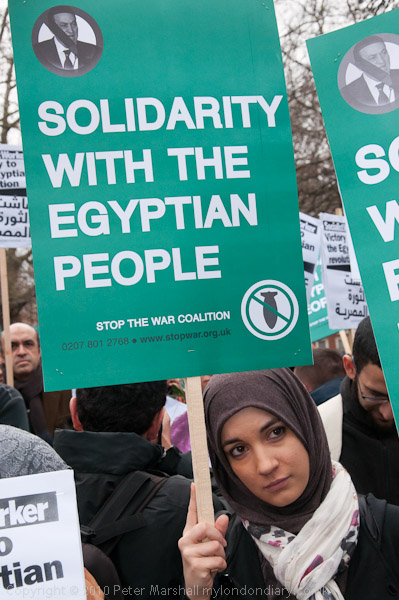
Elections at the end of the war led to a majority for the Egyptian nationalist movement, so the British exiled their leaders to Malta in 1919, starting the first modern Egyptian revolution. The UK caved in and granted Egypt independence, though largely nominally as the country remained under British military occupation until 1936 when the UK withdrew its troops except those around the Suez Canal.
During World War Two, Egypt tried to remain neutral despite considerable UK pressure and the presence of large numbers of British troops, who in 1942 surrounded the palace in Cairo and forced King Farouk to change his government.
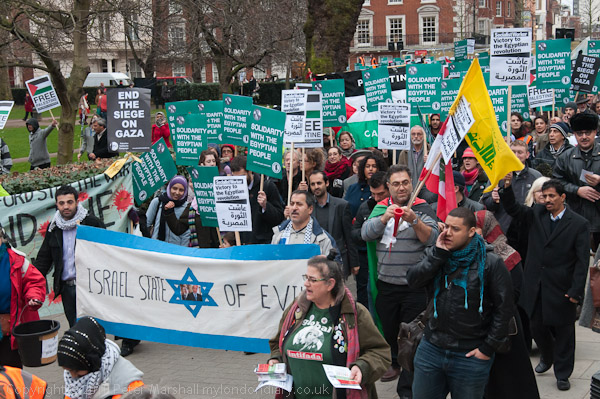
In 1951, Egypt demanded all remaining British troops who were then around the Suez Canal to leave the country, but the UK refused. British soldiers killed 43 Egyptian police officers in an police station at Ismalia and extensive riots followed. On 22-23 July 1952 military officers launched a coup d’état against King Farouk and took power; in June 1953 they declared Egypt a republic, with Gamal Abdel Nasser becoming Prime Minister, becoming President in 1956.
After Nasser nationalised the Suez Canal that year the UK and France together with Israel launched a disastrous attack – the Suez Crisis. The UK and France were humiliated after they were forced to withdraw by pressure from the UN, USA and Russia. The event is widely seen as marking the end of Great Britain’s role as one of the world’s major powers. Perhaps why we cling on to a hopelessly ineffectual “nuclear deterrent”.
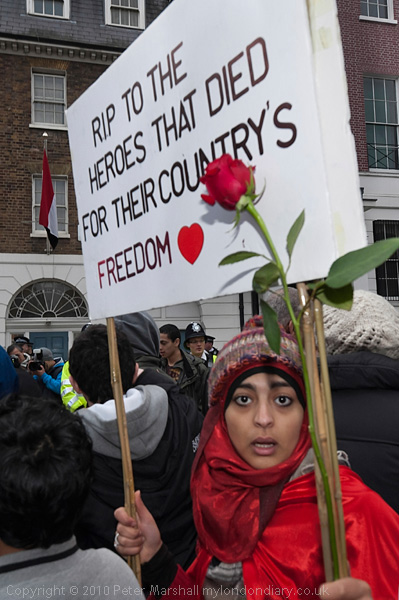
After Nasser’s death in 1970, Anwar Sadat took over as president until 1981, when he was assassinated by an Islamic extremist. Sadat expelled the Soviet advisers and attempted to modernise Egypt, encouraging foreign investment but his policies mainly benefited wealthier Egyptians.
Hosni Mubarak became president in 1981 following a referendum in which he was the only candidate. Under him draconian laws against freedom of expression and association were enacted, and political activities largely outlawed. In 2005 he enacted reforms which allowed for multi-candidate elections of the presidency but with severe restrictions on who could stand – and the candidate who got most votes after Mubarak was imprisoned after the vote.
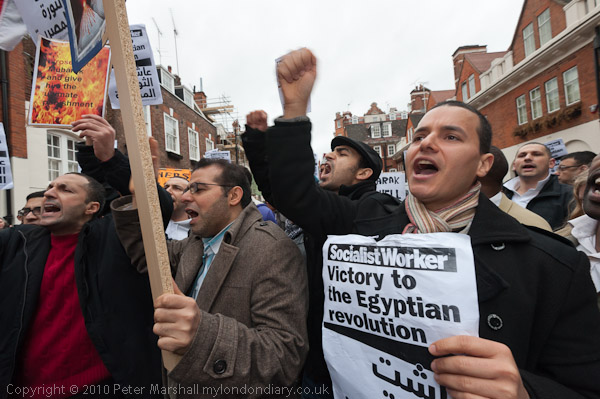
Human rights organisations in 2006-7 had detailed serious violations, including outine torture, arbitrary detentions and trials before military and state security courts, and naming Egypt as an international centre for torture in the US led ‘War on Terror’. In 2007 the constitution was altered, giving the president dictatorial powers, prohibiting religious political parties and authorising extreme powers of arrest and surveillance by the police, with a new anti-terrorism law.
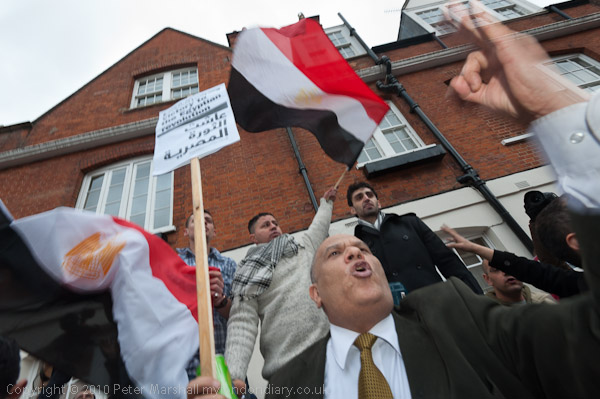
When the Arab Spring began in Tunisa in December 2010, it was hardly a surprise that it spread to Egypt along with other countries including Libya, Yemen, Syria and Bahrain. It began on 25 January 2011 with massive demonstrations, marches, occupations of public squares, acts of non-violent civil disobedience and strikes, with millions of protesters demanding the resignation of Mubarak.
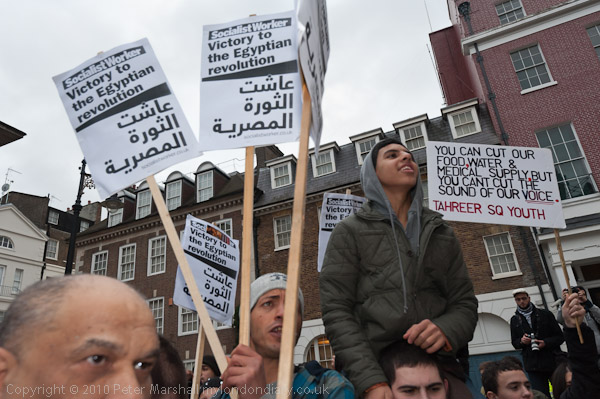
Wikipedia lists the following causes:
- Police brutality
- State-of-emergency laws
- Electoral fraud
- Political censorship
- Corruption
- Unemployment
- Food price rises
- Low wages
- Demographic structural factors
- Other regional protests
- Authoritarianism
- Political repression.
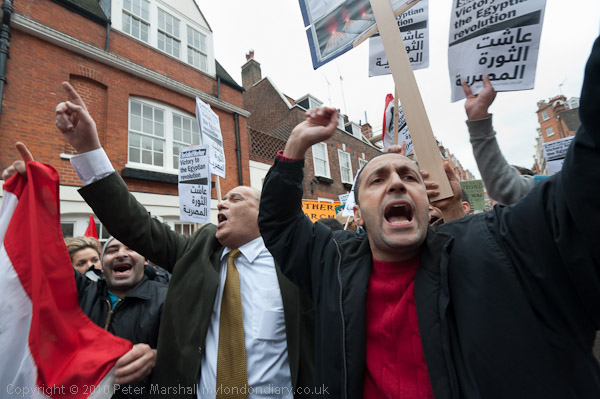
Tahrir Square became the centre of the revolution, with over 50,000 protesters occupying it on 25 January, and later growing to perhaps 300,000. The revolt continued there for 18 days until finally the military who had held the real power in Egypt at least since 1952 removed Mubarek from office on 11 February 2011.
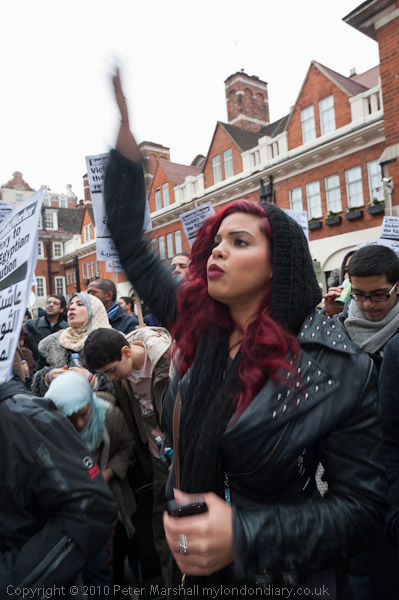
In London on Saturday 5th February 2011 I photographed three protests related to the Egyptian Revolution. The first was a protest at the US Embassy where speakers from Stop the War, the British Muslim Initiative and the Palestine Solidarity Campaign and others castigated the USA for its support of the Mubarak government over the years and called for his immediate departure.
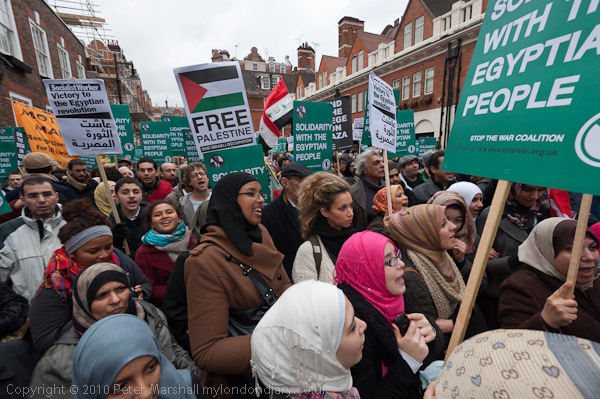
From there I went with the protesters to join others at the Egyptian Embassy in Mayfair, to join the Egyptians who had been protesting there all week.
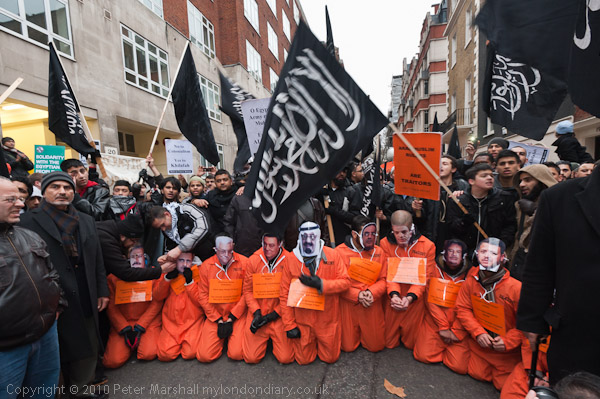
While I was photographing at the Embassy I heard the noise of another protest a hundred yards or so down the street, where supporters of Hizb ut-Tahrir had turned up in force. As usual most were dressed in black, but there was a group of men dressed in orange Guantanamo jump suits and wearing the masks of the corrupt rulers of Arab states.
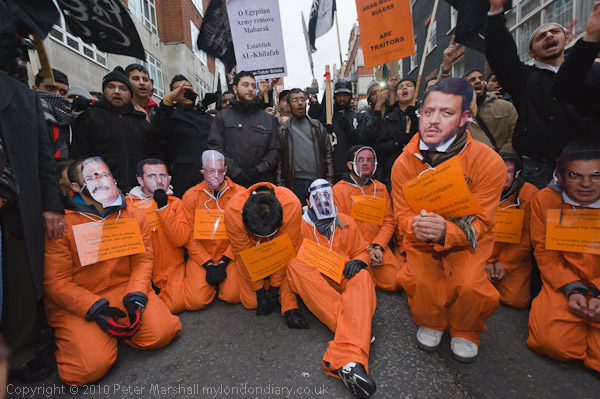
Their rally was not in support of the current protests in Tahrir Square and elsewhere, but for a different Arab revolution, calling on the Egyptian army to remove Mubarek but in its place not to establish democracy and freedom, but to set up a Caliphate, theocratic rule rather like that in Iran.
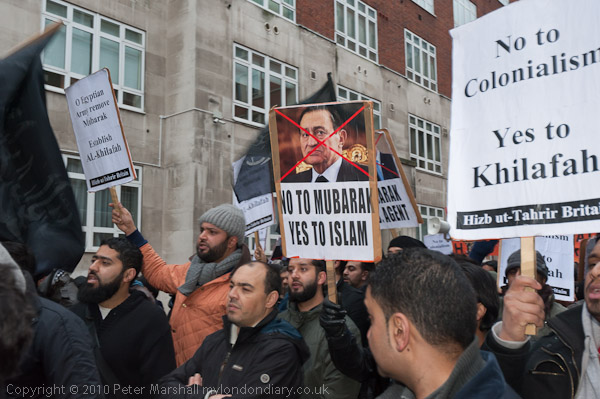
You can read more about the London protests in the three links below to My London Diary where there are many more pictures. Sadly although Mubarek was removed, events in Egypt have not led to the increased freedoms the 2011 revolution was demanding. You can read more about the Arab Winter and the Egyptian Crisis that followed in various articles on Wikipedia and elsewhere online.
Hizb ut-Tahrir at Egyptian Embassy
Egyptian Embassy Demonstration
US Embassy Rally For Egypt